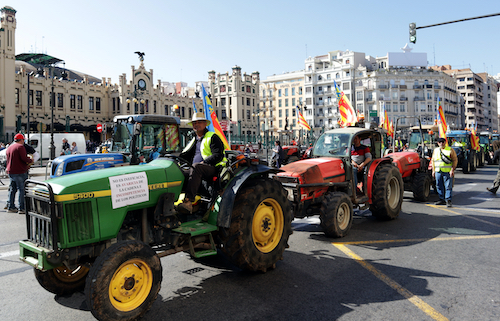With COVID-19 ushering in a new era of social distancing, the idea of a mass demonstration seems as quaint as a delivery from the milkman. However, as recently as last month the memory of France’s gilet jaunes—the yellow-vested protesters who blocked French intersections over proposed fuel taxes—inspired Spanish farmers to block streets and wring ill-conceived concessions from the government.
Spanish farmers believed producers should receive the lion’s share of the final sales cost. This echoes the Marxist “labor theory of value” and ignores the services rendered by the rest of the distribution network in bringing crops from farm to table.
In a new essay for Religion & Liberty Transatlantic, Ángel Manuel García Carmona describes how the French “yellow vest” movement influenced Spanish farmers’ tactics, shaped their demands, and inspired policies that do not help Spain’s consumers.
In a particularly poignant passage, he notes that higher costs—and the taxes and government spending programs generally favored by the movement—inhibit farmers and entrepreneurs from participating in their higher calling:
Nature is God’s creation, a gift that must be developed and transformed by human effort to achieve higher levels of social and economic prosperity. We should oppose any tax or regulatory scheme that inhibits people from performing this duty.
(Photo credit: Laurar Prime / Shutterstock.com. Editorial use only.)

